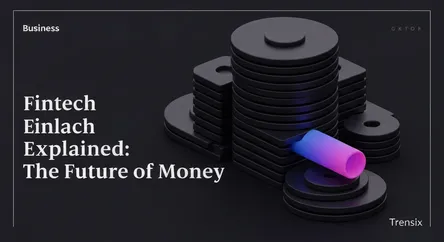Business
Fintech Explained: The Future of Money

Discover Fintech, the technology revolutionizing finance. Learn how innovations in banking, payments, and investing are changing how we manage money.
What is it?
Fintech, a portmanteau of "financial technology," refers to any technology used to improve, automate, or disrupt traditional financial services. It encompasses a broad range of innovations, from mobile banking apps and digital payment platforms like PayPal or Venmo, to complex systems like cryptocurrency and blockchain. The core goal of fintech is to make financial activities, such as borrowing, investing, and money transfers, more accessible, efficient, and secure for both consumers and businesses. Think of robo-advisors that automate investment strategies or apps that allow you to get a loan without ever stepping into a bank.
Why is it trending?
Widespread smartphone adoption and internet access have created a massive demand for on-the-go financial management. Consumers now expect the same seamless, user-friendly experience from their bank that they get from other digital services. Fintech startups are agile and innovative, often challenging the slower, more traditional banking institutions. Furthermore, advancements in AI, machine learning, and data analytics have enabled more personalized and sophisticated financial products, pushing the industry's evolution forward at a rapid pace.
How does it affect people?
For individuals, fintech brings convenience and control directly to their fingertips. It often leads to lower fees, better interest rates, and greater transparency compared to traditional financial institutions. It democratizes finance by giving more people access to tools for investing, saving, and securing loans. For businesses, it streamlines operations, automates payments, and provides better data for decision-making. Essentially, fintech is reshaping our relationship with money, making financial management an integrated and simpler part of daily life.